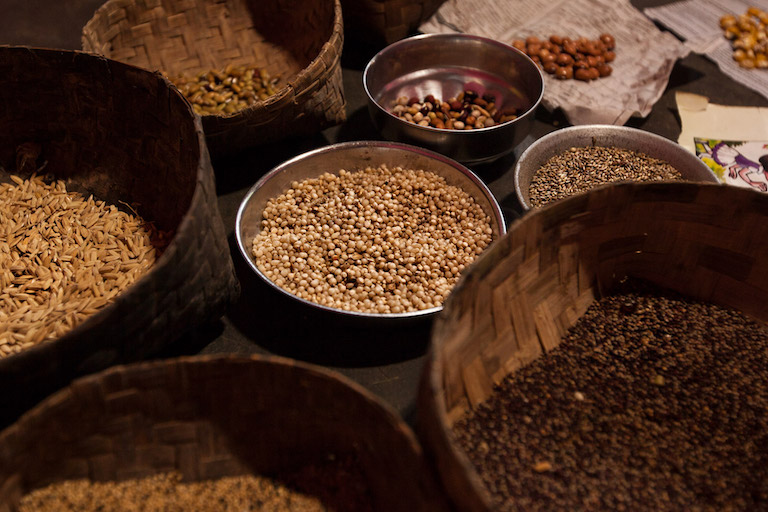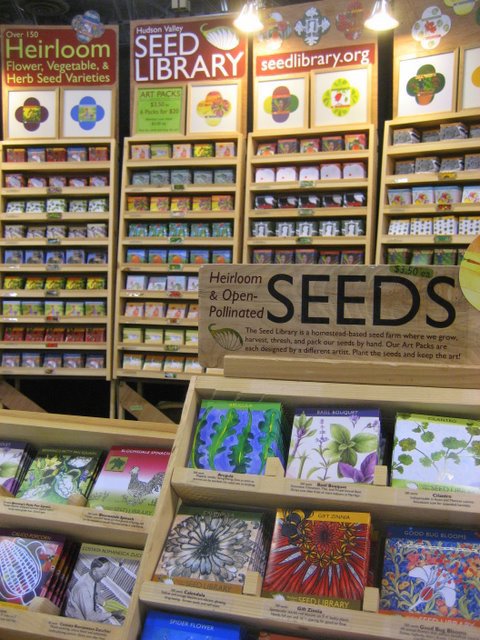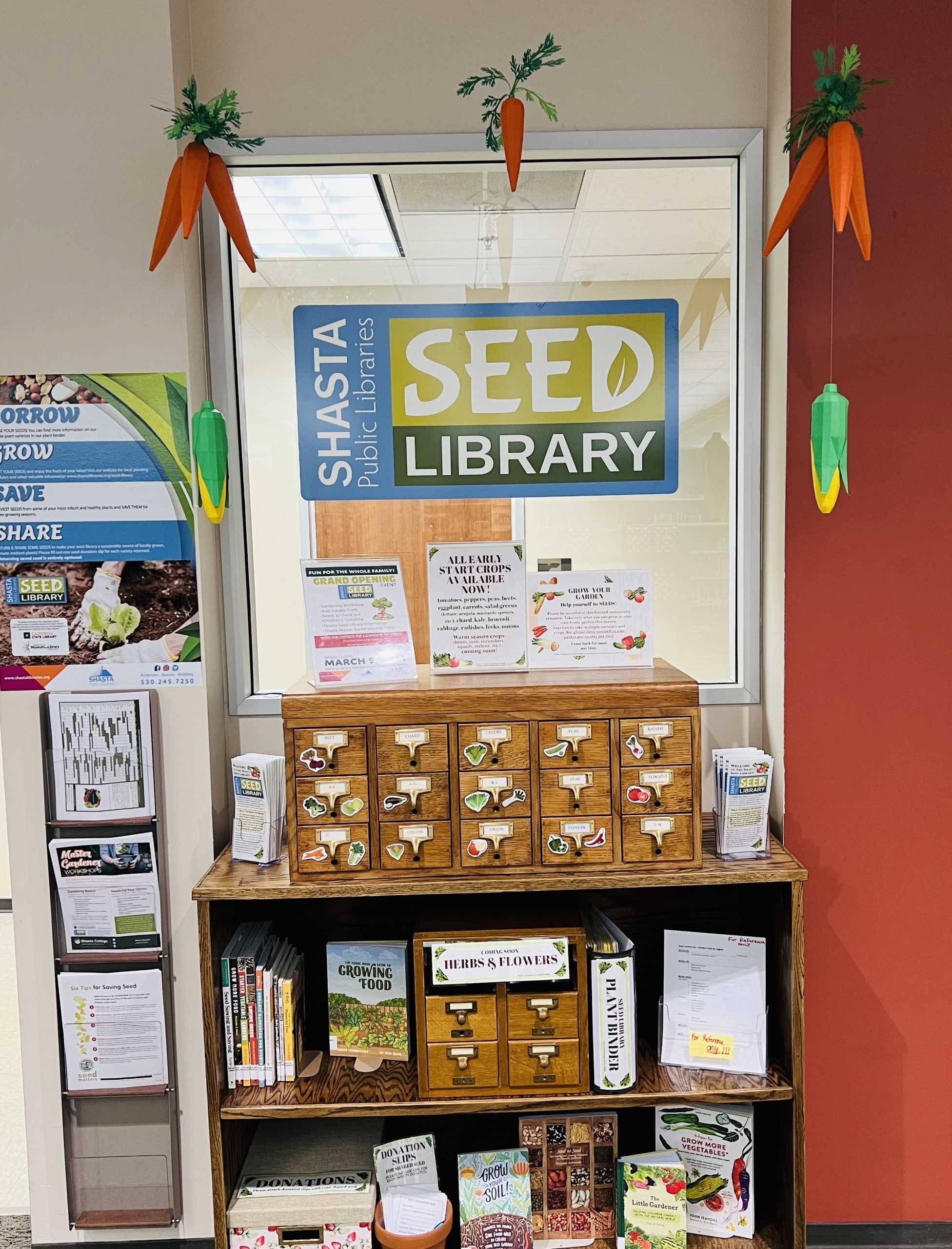
Seed Libraries: Grow Local, Build Resilience, Save Seeds.
Imagine the joy of biting into a sun-ripened tomato, its flavor bursting with a sweetness you've never tasted before. Now, imagine that this tomato isn't just delicious; it's a piece of history, a survivor passed down through generations, perfectly adapted to your local climate. That's the power of heirloom seeds, and it’s the kind of magic I experienced when I found a 'Brandywine Pink' tomato seed packet at my local seed library last spring. The plant thrived, producing an abundance of fruit, and now I'm excited to share its seeds with others, keeping this amazing variety alive and well in our community.
Seed libraries are blooming across the country, offering a community-based solution to food security concerns. More than just a place to borrow seeds, they are hubs for knowledge sharing, biodiversity preservation, and local food system empowerment. With growing anxieties around climate change, supply chain disruptions, and the rising cost of food, access to affordable, diverse, and regionally adapted seeds has never been more crucial. In this post, we'll explore the world of seed libraries, uncover the power of open-pollinated varieties, and provide actionable steps you can take to engage with these invaluable resources and build a more resilient food future, starting right in your own backyard.

The Power of Seed Libraries: A Local Food Security Solution
Seed libraries are quietly revolutionizing the way we think about food security. These community repositories operate on a simple, yet profound principle: members "borrow" seeds at the beginning of the growing season, cultivate their crops, and then "return" a portion of the seeds at the end of the season for others to use.
But the benefits extend far beyond simply swapping seeds. Seed libraries are critical for:
- Providing access to a wider variety of seeds: Seed catalogs can be overwhelming and expensive. Seed libraries offer access to unique heirloom varieties and open-pollinated seeds that might not be commercially available, increasing biodiversity and resilience in local gardens.
- Preserving locally adapted seeds: Commercial seeds are often bred for uniformity and mass production, not necessarily for optimal performance in specific regions. Seed libraries often prioritize locally adapted seeds, which are better suited to the region's climate, soil conditions, and pest pressures.
- Reducing reliance on commercial seed companies and promoting seed sovereignty: By saving and sharing seeds, communities become less dependent on large corporations and regain control over their food supply. This is especially important in light of increasing corporate consolidation within the seed industry.
- Fostering community building and knowledge sharing: Seed libraries are not just about seeds; they are about people. They provide opportunities for gardeners to connect, share knowledge, and learn from each other. They often host workshops, seed swaps, and other educational events.
While the concept of seed saving is ancient, the modern seed library movement has gained momentum in recent decades. There can be risks associated with seed libraries, such as the potential for cross-pollination between varieties or the unintended spread of seed-borne diseases. To mitigate these risks, many seed libraries implement best practices like educating borrowers about proper seed saving techniques, providing clear labeling guidelines, and isolating seed production areas.
Consider the example of the Richmond Grows Seed Lending Library in Richmond, California. Founded in 2010, this library has become a model for community-based seed saving and sharing. They offer a vast collection of seeds, host educational workshops, and actively promote seed sovereignty in their community. They’ve fostered a network of skilled seed savers who are dedicated to preserving heirloom varieties and adapting seeds to the unique challenges of the Bay Area climate.
Seed libraries are more than just a place to borrow seeds; they are crucial for fostering local food resilience, preserving genetic diversity, and empowering communities to take control of their food future.

Navigating the Seed Landscape: Open-Pollinated vs. Hybrid vs. GMO
Understanding the different types of seeds available is essential for making informed choices about your garden and contributing to a resilient food system. Let's break down the key distinctions:
- Open-Pollinated (OP) Seeds: These seeds are the cornerstone of seed saving and long-term food security. Open-pollinated plants produce seeds that will "come true," meaning they will reliably produce plants with the same characteristics as the parent plant. This allows gardeners to save seeds year after year, adapting them to their local environment over time. Heirloom varieties are a subset of open-pollinated seeds, generally referring to varieties that have been passed down for generations.
- Hybrid (F1) Seeds: Hybrid seeds are created by cross-pollinating two different parent plants. The resulting F1 generation often exhibits desirable traits like increased vigor, disease resistance, or yield. However, seeds saved from hybrid plants will not come true; they will produce plants with unpredictable characteristics, often reverting to traits of the parent plants. Gardeners must purchase new hybrid seeds each year to maintain the desired traits.
- Genetically Modified (GMO) Seeds: GMO seeds have been genetically engineered to exhibit specific traits, such as resistance to herbicides or insect pests. GMO seeds are often patented and subject to strict regulations. Saving seeds from GMO plants is generally prohibited. While GMOs have a role in agriculture, many gardeners prefer to avoid them due to concerns about their environmental impact and the potential for corporate control of the food supply.
The benefits of open-pollinated seeds are clear: they allow for seed saving, genetic adaptation, and community resilience. Concerns surrounding hybrid seeds often revolve around the need to purchase new seeds each year, creating dependence on seed companies. Concerns surrounding GMO seeds are much wider, and very valid reasons to avoid GMO seeds include potential environmental risks, health concerns, and ethical considerations.
When purchasing seeds, look for labels indicating "open-pollinated" or "heirloom." Be aware that seed packets may not always clearly state whether a seed is hybrid or open-pollinated, so do your research and choose reputable seed suppliers.
Understanding the distinctions between open-pollinated, hybrid, and GMO seeds is vital for making informed decisions about seed selection and contributing to a resilient and ethical food system.
Getting Involved: How to Use, Support, or Start a Seed Library
Ready to jump in? Here's how you can participate in the seed library movement:
Using a Seed Library:
- Find a local seed library: Many public libraries, community gardens, and non-profit organizations host seed libraries. Search online for "seed library near me" to find resources in your area.
- Browse the seed catalog: Seed libraries typically have a catalog listing available seeds. Choose varieties that are well-suited to your local climate and growing conditions.
- "Borrow" seeds: Follow the seed library's borrowing guidelines. You'll usually be asked to fill out a simple form and provide information about your garden.
- Grow your plants: Plant your seeds and care for your garden as usual.
- Save seeds (if possible): If you grow open-pollinated varieties, save a portion of the seeds at the end of the season.
- "Return" seeds: Clean and dry your saved seeds, label them accurately, and return them to the seed library for others to use. Be sure to include information about the plant's performance in your garden, such as yield, disease resistance, and flavor.
Supporting a Seed Library:
- Volunteer your time: Seed libraries often need volunteers to sort seeds, package seeds, organize events, and provide educational resources.
- Donate seeds: If you're an experienced gardener, donate extra seeds from your garden. Be sure to clean and dry them properly and label them accurately.
- Provide educational resources: Offer to lead workshops on seed saving, gardening, or other related topics. Create handouts or online resources to share your knowledge.
- Promote the seed library: Spread the word about the seed library to your friends, neighbors, and community.
Starting a Seed Library:
- Assess community needs: Determine if there's a need for a seed library in your community. Talk to local gardeners, community organizations, and libraries.
- Find a location: Partner with a library, community garden, or other organization to provide a physical space for the seed library.
- Develop policies and procedures: Establish guidelines for seed borrowing, seed saving, and seed donation.
- Collect initial seed donations: Reach out to local gardeners, seed companies, and organizations to solicit seed donations.
- Create a seed inventory and catalog: Organize your seeds and create a catalog that lists available varieties.
- Develop educational materials: Create handouts, online resources, and workshops to educate the community about seed saving and gardening.
- Partner with local organizations and businesses: Collaborate with local organizations and businesses to promote the seed library and secure funding or resources.
Whether you're a seasoned gardener or a beginner, there are many ways to get involved with seed libraries and contribute to building a more resilient local food system.

Seed Saving for Resilience: Tips and Best Practices
Saving seeds is a vital skill that empowers homesteaders to become more self-sufficient and contribute to a more resilient local food system. Here are some tips and best practices for saving seeds from common garden plants:
- Tomatoes: Choose open-pollinated varieties. Allow tomatoes to fully ripen on the vine. Squeeze the seeds and pulp into a jar, add a little water, and let it ferment for a few days. The fermentation process helps to remove the gelatinous coating around the seeds. Rinse the seeds thoroughly, dry them on a paper towel, and store them in an airtight container.
- Beans: Allow bean pods to dry completely on the plant. Shell the beans and dry them further for a few weeks. Store the dried beans in an airtight container.
- Lettuce: Allow lettuce plants to bolt and produce flower stalks. Collect the seeds when they are dry and fluffy.
- Peppers: Allow peppers to fully ripen on the plant. Remove the seeds and dry them on a paper towel.
- Squash: Allow squash to fully ripen on the vine. Scoop out the seeds and remove any pulp. Wash the seeds and dry them thoroughly.
Proper drying, cleaning, and storage are essential for seed viability. Seeds should be stored in a cool, dry, and dark place. Label your seeds accurately with the variety name, date of harvest, and any other relevant information.
Seed saving is not without its challenges. Cross-pollination can occur between different varieties, so it's important to isolate plants or choose self-pollinating varieties. Seed-borne diseases can also be a concern, so select healthy plants for seed saving.
Connecting seed saving to community resilience involves sharing knowledge and exchanging seeds with others. Attend seed swaps, join seed saving groups, and share your experiences with other gardeners.
Learning to save seeds is a valuable skill that empowers homesteaders to become more self-sufficient and contribute to a more resilient local food system.

A Seed of Hope for the Future
Seed libraries and seed saving are more than just gardening practices; they are acts of resilience, community building, and food sovereignty. By embracing these initiatives, we can collectively create a more secure, sustainable, and equitable food future for ourselves and generations to come. The power to shape our food system lies in our hands, one seed at a time. It's a seed of hope, planted in fertile ground, ready to blossom into a more resilient tomorrow.
Join your local seed swap and share your seed saving tips!
